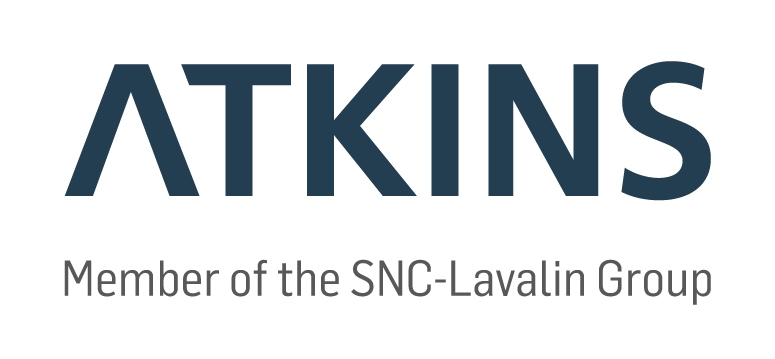
Welcome to the 8 Questions, where we ask senior figures in the sector the questions every business leader and ambitious professional wants answered. In this edition, Jake Master, Marketing Manager and EDI Co-chair for the Transportation business at Atkins is asked what is essential to delivering a successful EDI strategy, how you can ensure EDI strategies have long term use and a positive legacy and much more.
Join other savvy professionals just like you at CIHT. We are committed to fulfilling your professional development needs throughout your career

Engagement and Honesty – I know those are two things. However, concerning delivering an EDI strategy, to my mind, both are equally important, and you can’t separate them. Engagement with the employees within a business is critical. Without that engagement, it’s impossible to understand how your employees feel and what challenges and issues they encounter daily within the organisation and their dealings with other stakeholders.
There are so many potential areas of inequality regarding employee experience, so unless you take the time to engage in an honest conversation, how do you know where to begin? Honesty is as important. Employees must be prepared to engage in an open dialogue and share their experiences. Sometimes they can be tough conversations to hold, but they need to feel that we will hear their voices and make a difference to them and colleagues who may join in the future. Equally, the organisation needs to be seen as honest and genuinely wanting to make a difference, without being seen as just wanting to pay ‘lip service’ to EDI because it is the ‘in thing’.
That’s a really tough question as we’re still on a journey and learning as we go along. I’ve mentioned engagement, and it is a critical part of the learning to take forward. People have a vital voice and a contribution we need to encourage them to make. The levels of engagement we’ve had in shaping our EDI strategy have been amazing. However, this has only been possible by encouraging openness and ensuring everyone contributes.
I think inclusion and ensuring we listen to the opinion of colleagues irrespective of their gender, ethnicity, disability, sexual orientation, or seniority. It’s also critical to ensure people want to make a difference, and the level of senior buy-in and support we’ve had throughout this project has been fantastic. You genuinely get the impression that the organisation wants to deliver positive outcomes and changes.
I don’t think EDI can be viewed from the perspective of a traditional project. Most projects are time-constrained and have a set delivery date. EDI is different as it is a journey that encompasses organisational, behavioural, and societal change. These are not easy things to deliver within a set timeframe.
Our EDI strategy (#Differentmakesadifference) is a three-year strategy that contains our core objectives regarding what we are trying to deliver as a business. It also includes several specific areas of focus we want to achieve within the three-year cycle that the strategy covers. So, we need to be committed to the long term.
The engineering sector has a lot to do in terms of diversity. Many published reports show we lag other sectors when it comes to diversity. To leave a long-term legacy, we must demonstrate greater diversity concerning the composition of our workforce. Our work will continue for as long as is required until we feel we’ve become a truly diverse organisation and left a positive legacy for future generations of engineers.
As an organisation, I feel we have been very fortunate. The most significant challenge in developing and delivering a strategy to address the various aspects of EDI is getting senior support for the work. As part of the SNC-Lavalin Group, Atkins is fortunate to have a global CEO, Ian Edwards, who actively believes in equality, diversity and inclusion. We are also lucky to have senior leaders such as Philip Hoare, the president of Engineering Services, and Richard Robinson, our UK CEO. They all share Ian’s passion for equality and are prepared to roll their sleeves up and directly sponsor some of our EDI networks.
This level of senior support has helped to remove many potential barriers and challenges that would have had to be overcome. Each one of our EDI networks, (there are 10 at the moment) has been empowered to develop its strategies and objectives. They all receive the support they need to engage with our employees as a part of helping to shape and deliver our EDI strategy. This has enabled us to overcome many challenges we would have faced otherwise.
I’ve already talked about honesty and engagement, and they are critical in creating a culture where everyone in the organisation feels that they can have a voice and be their true selves at work. In researching our strategy, we issued an EDI survey that received over 3,100 responses, held 9 focus groups attended by more than 150 employees, and reviewed over 1,100 leavers reports.
The feedback we received when we researched the experiences of people from diverse backgrounds in support of developing our EDI strategy was vital. It informed us that people viewed creating a culture where everyone can speak up and be themselves as a critical component in shifting perceptions and attitudes.
To succeed, organisations need to weave EDI into everything they do and help bring everyone on the journey. We can only achieve this by raising awareness of the challenges faced by diverse groups and discussing them openly and constructively. By doing so, you can understand them and start to make a difference in the areas that have been identified as needing attention.
Achieving buy-in, particularly from senior management, has been relatively straightforward, as they are genuinely committed to embracing diversity in what we do as a business. They are supportive of many of the ideas and suggestions and are fully bought into the EDI strategy we have developed for the business. The SNC-Lavalin / Atkins business is a large, global organisation, and we are lucky to be in a position where diversity is being led across all the regions in which we operate globally. We recognise that sustaining engagement is a lot simpler than if it is being led by one region alone.
We make no apologies for continuing to talk about EDI within the business. Why? – if you look at gender diversity alone, it has been almost 140 years since Clementina Black, secured the first equal pay resolution at Trades Union Congress – yet, we still haven’t achieved parity in equal pay between men and women. As a society, we cannot wait for 140 years until we achieve equality in areas such as race, disability, neurodiversity, LGBTQ+ parity, etc. We will only speed up the progress we need to make through sustained engagement and ensuring we develop EDI allies who are aware of and promote the needs of a fair society for all.
As an organisation, we set ourselves some tangible goals and targets to help us measure our progress. The most ambitious of these is achieving Platinum accreditation with The Clear Company by the end of 2023. The Clear Company are EDI specialists who we have engaged to support and challenge us on our journey. We’re delighted that we successfully achieved Gold accreditation in 2021, the first engineering business to do so.
This has included a review of our HR policies to ensure they are inclusive and work to develop a multi-faceted approach to improve our EDI Capability among a range of other things. We’ve also committed to improving our EDI data concerning understanding the diversity of our workforce so that we can put in place more strategies and policies to support people through their careers. We have set targets concerning the gender composition of our workforce. These include increasing the number of colleagues in senior leadership positions, increasing the number of graduates from ethnic minority backgrounds that we bring into the organisation, and increasing the number of part-time workers. These are all hard metrics against which we monitor progress and develop and refine improvement plans to deliver the outcomes we are keen to see.
Recognise and embrace the diversity and talent that exists in our society! Recent years and events have brought EDI to the forefront of creating a fair and more equitable society - five or ten years ago, it simply wasn’t on the agenda. However, there has been an increase in the prominence of the challenges that we need to overcome as a society, and the injustices certain diverse groups in our society have been facing for years and years.
The leaders of our industry have a tremendous opportunity to create change, both for individuals who have experienced marginalisation and for the wider industry. Leaders can choose to invest in the diversity of their staff. They can choose to create workplaces that genuinely reflect society. Our leaders must think about fostering an atmosphere of inclusivity and openness, where people can be seen for who they really are. Doing so will help boost productivity, improve staff retention and result in better outcomes for the clients and communities they serve. Doing nothing simply isn’t an option. As employees will eventually move to organisations that take EDI more seriously and respect the challenges, experiences, and benefits of a diverse workforce.

The opinions expressed in this article are those of the authors. They do not purport to reflect the opinions or views of the CIHT or its members. Neither the CIHT nor any person acting on their behalf may be held responsible for the use which may be made of the information contained therein.